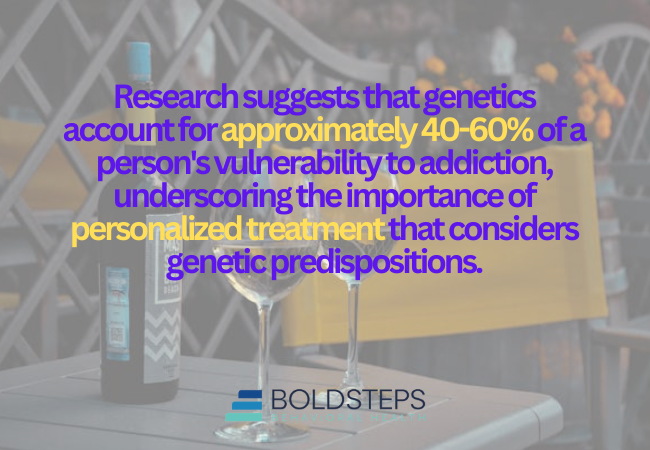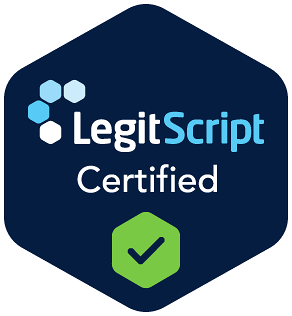Recovery from addiction is a deeply personal and transformative journey. Each individual’s experience with addiction is unique, shaped by their personal history, the substance they’ve used, and their emotional and mental health. This is why personalized care is essential in drug and alcohol treatment programs. It ensures that treatment plans address the specific needs of each client, enhancing their chances of achieving lasting sobriety.
At Bold Steps Behavioral Health, we emphasize the importance of customized treatment in all our programs. By focusing on individualized care, we help clients not only recover but also rebuild their lives with confidence and purpose. In this blog, we’ll explore why personalized care is crucial, how it works in practice, and the significant impact it has on long-term recovery.
What Is Personalized Care in Addiction Treatment?
Personalized care refers to tailoring addiction treatment programs to address the unique needs, challenges, and goals of each individual. Unlike generalized approaches, which apply the same methods to all clients, personalized care recognizes that every journey to recovery is different.
Key Components of Personalized Care:
- Comprehensive Assessment: Detailed evaluations to understand a client’s substance use history, mental health, physical health, and personal circumstances.
- Substance-Specific Treatment: Customizing care based on the substance of addiction, whether it’s opioids, alcohol, benzodiazepines, or stimulants.
- Flexible Levels of Care: Offering treatment options like Partial Hospitalization Programs (PHPs), Intensive Outpatient Programs (IOPs), and Outpatient Treatment to accommodate varying needs and lifestyles.
- Cultural Sensitivity: Considering cultural, social, and familial influences in the treatment process.
By addressing the unique factors influencing each individual’s addiction, personalized care creates a more effective and meaningful path to recovery.
Why One-Size-Fits-All Treatment Falls Short
Addiction is a complex condition influenced by a combination of biological, psychological, and environmental factors. A standardized approach often fails to account for these complexities.
Challenges of Generalized Treatment Programs:
- Overlooking Dual Diagnosis: Many individuals struggle with co-occurring mental health conditions like anxiety, depression, or PTSD. Generic programs may not address these underlying issues, increasing the risk of relapse.
- Ignoring Substance Differences: The effects of drugs like opioids, stimulants, and alcohol differ significantly, requiring tailored strategies for detox and rehabilitation.
- Minimal Flexibility: Generalized programs may not fit the schedules, responsibilities, or preferences of all clients, reducing engagement and effectiveness.
Personalized care overcomes these limitations by adapting to the individual’s unique circumstances, ensuring a holistic and client-centered approach.
How Personalized Care Enhances Detox Programs
Detoxification is often the first step in addiction treatment. Personalized care is especially critical during this phase, as withdrawal symptoms and medical risks vary widely depending on the substance and the individual’s health.
Customized Detox Protocols:
- Opiate Addiction Treatment: Medication-Assisted Treatment (MAT) with methadone or buprenorphine helps manage withdrawal symptoms and cravings, minimizing discomfort and reducing the risk of relapse.
- Alcohol Detox: Detox for alcohol can involve life-threatening complications like seizures or delirium tremens. Personalized care ensures the use of medications like benzodiazepines to stabilize the client safely.
- Benzodiazepine Treatment: A gradual tapering process is often necessary to prevent severe withdrawal symptoms.
- Stimulants Treatment: While physical symptoms may be mild, psychological symptoms like depression and anxiety are addressed through therapy and supportive care.
Tailored detox plans reduce the risk of complications, improve comfort, and prepare clients for the therapeutic work of rehabilitation.
Individualized Therapies for Deeper Healing
Therapy is the cornerstone of addiction recovery, addressing the emotional and psychological aspects of addiction. Personalized care ensures that clients receive therapies that resonate with their specific experiences and needs.
Therapeutic Approaches in Personalized Treatment:
- Cognitive Behavioral Therapy (CBT): Helps clients identify and change harmful thought patterns that contribute to addiction.
- Dialectical Behavior Therapy (DBT): Focuses on emotional regulation, stress management, and improving relationships.
- Trauma-Focused Therapy: Addresses past trauma, which is often a root cause of addiction.
- Family Therapy: Rebuilds trust and improves communication within families affected by addiction.
- Group Therapy: Provides peer support while addressing shared challenges in a safe, nonjudgmental environment.
- Holistic Therapies: Incorporates mindfulness, yoga, art therapy, and other practices to promote overall well-being.
By matching the right therapeutic methods to each client, personalized care creates a deeper, more meaningful recovery experience.
Flexible Program Options for Every Stage of Recovery
Recovery is not a linear process, and clients often require varying levels of care throughout their journey. Personalized programs adapt to meet these changing needs.
Flexible Treatment Options at Bold Steps Behavioral Health:
- Partial Hospitalization Program (PHP): Provides intensive therapy during the day, allowing clients to return home in the evenings.
- Intensive Outpatient Program (IOP): Balances structured therapy with the flexibility to manage work or family responsibilities.
- Outpatient Treatment: Offers ongoing support for individuals who have completed higher levels of care or have milder addiction.
These options ensure that treatment fits seamlessly into the client’s life, enhancing engagement and effectiveness.
The Importance of Addressing Co-Occurring Disorders
Many individuals with substance use disorders also struggle with mental health conditions. This is known as a dual diagnosis, and personalized care is essential for addressing both conditions simultaneously.
How Personalized Care Supports Dual Diagnosis Treatment:
- Integrated Approach: Combines addiction therapy with mental health treatment to address the full scope of the client’s challenges.
- Customized Coping Strategies: Tailored plans help clients manage mental health symptoms without resorting to substance use.
- Medication Management: Ensures safe and effective use of medications for both mental health and addiction recovery.
Treating co-occurring disorders holistically improves overall well-being and reduces the risk of relapse.
Personalized Aftercare for Long-Term Sobriety
Recovery doesn’t end when treatment does. Aftercare is a vital component of long-term sobriety, and personalized care ensures that clients remain supported as they transition back into everyday life.
Tailored Aftercare Plans Include:
- Relapse Prevention Strategies: Personalized plans to help clients recognize and manage triggers effectively.
- Continued Therapy: Regular individual or group therapy sessions to reinforce progress and address new challenges.
- Alumni Support Programs: Connecting clients with a recovery community for ongoing encouragement and accountability.
- Life Skills Training: Helps clients develop routines, manage stress, and rebuild their lives with confidence.
At Bold Steps Behavioral Health, our aftercare programs are designed to empower clients with the tools they need to thrive independently.
Why Personalized Care Matters for Different Substances
Addiction to different substances presents unique challenges, making personalized care essential.
Examples of Substance-Specific Programs:
- Opiate Addiction Treatment: Focuses on managing intense cravings and addressing long-term neurological effects.
- Alcohol Addiction Treatment: Emphasizes navigating social situations where alcohol is prevalent and addressing health complications.
- Benzodiazepine Treatment: Safely manages withdrawal and addresses the underlying anxiety or sleep disorders that contributed to use.
- Stimulants Treatment: Focuses on rebuilding mental health and addressing issues like paranoia or emotional instability.
Tailored care ensures that treatment is both relevant and effective for each individual.
Why Choose Bold Steps Behavioral Health?
At Bold Steps Behavioral Health, we believe in the power of personalized care to transform lives.
What Sets Us Apart:
- Comprehensive Assessments: We take the time to understand every client’s unique needs and challenges.
- Tailored Treatment Plans: Our programs are customized from detox to aftercare, ensuring the best possible outcomes.
- Experienced Staff: Our team includes licensed therapists, counselors, and medical professionals dedicated to compassionate care.
- Holistic Approach: We combine evidence-based therapies with holistic methods to promote overall well-being.
- Supportive Environment: Our facility provides a safe, nurturing space for healing and growth.
Take the First Step Toward Recovery
Recovery is a personal journey, and at Bold Steps Behavioral Health, we are here to guide you every step of the way. Contact us at (603) 915-4223 or visit Bold Steps Behavioral Health to learn more about our drug rehabilitation center, alcohol treatment programs, and personalized recovery options. Take the bold step toward lasting sobriety today.
Frequently Asked Questions (FAQs)
What is personalized care in addiction treatment?
Personalized care involves tailoring treatment programs to address the unique needs, challenges, and goals of each individual. It considers factors like substance type, co-occurring disorders, and personal circumstances.
Why is personalized care important in detox programs?
Personalized detox plans ensure safe management of withdrawal symptoms, tailored to the specific substance (e.g., alcohol, opioids, or stimulants) and the individual’s medical history.
How does personalized care benefit therapy in rehab?
Personalized care matches clients with therapies that address their unique challenges, such as Cognitive Behavioral Therapy (CBT) for negative thought patterns or family therapy to rebuild relationships.
What role does personalized care play in dual diagnosis treatment?
Dual diagnosis treatment integrates mental health care with addiction recovery, addressing co-occurring disorders like anxiety, depression, or PTSD alongside substance use.
What are the levels of care in a personalized treatment program?
Clients may access Partial Hospitalization Programs (PHPs), Intensive Outpatient Programs (IOPs), or Outpatient Treatment, depending on their recovery stage and lifestyle needs.
How does personalized care address different substances?
Tailored treatment plans consider the unique challenges of various substances, such as managing cravings in opiate addiction treatment or addressing social triggers in alcohol addiction treatment.



